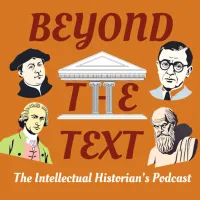Episode Description
In this History of Ideas Club session, we turn to one of the foundational texts of Western political thought: Plato’s Republic. Written in the aftermath of Athens’ political turmoil and the execution of Socrates, The Republic reflects Plato’s deep skepticism toward democracy and his radical vision for a just society governed by wisdom rather than popular opinion.
Plato (c. 427–347 BCE), student of Socrates and teacher of Aristotle, presents a powerful critique of Athenian politics through the voice of Socrates. In The Republic, he outlines a tripartite society led by philosopher-kings—those uniquely equipped to grasp the eternal truths of justice and the good. He advances his famous Theory of Forms, arguing that the physical world is only a shadow of a higher, unchanging realm of perfect ideas.
From the allegory of the cave to the vision of a hierarchical yet harmonious state, Plato’s work raises timeless questions about truth, power, education, and the soul. Admired by some as a blueprint for rational governance and condemned by others as authoritarian, The Republic continues to provoke debate across philosophy, politics, and literature.
📚 Recommended Reading:
- Plato, The Republic (especially Books I–VII)
- Julia Annas, An Introduction to Plato’s Republic
- Karl Popper, The Open Society and Its Enemies
🎙 Hosted by: The History of Ideas Club
📍 Recorded live in London
Subscribe for more thought-provoking sessions on the thinkers who shaped our world.
